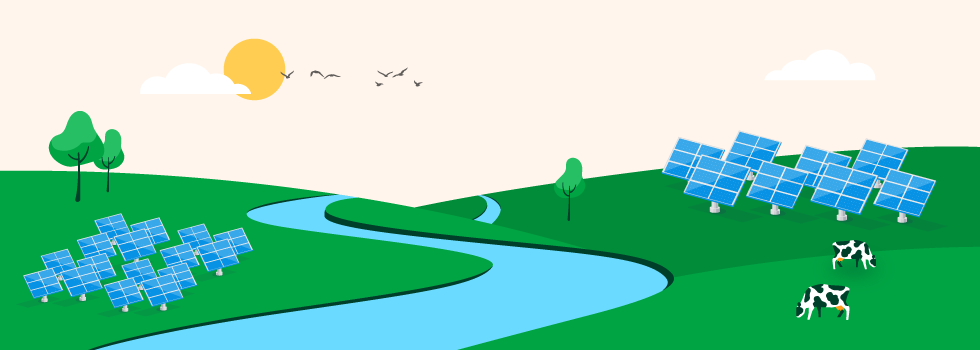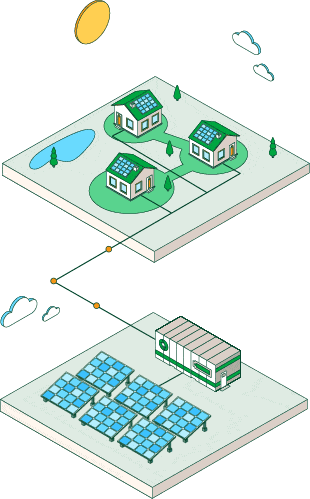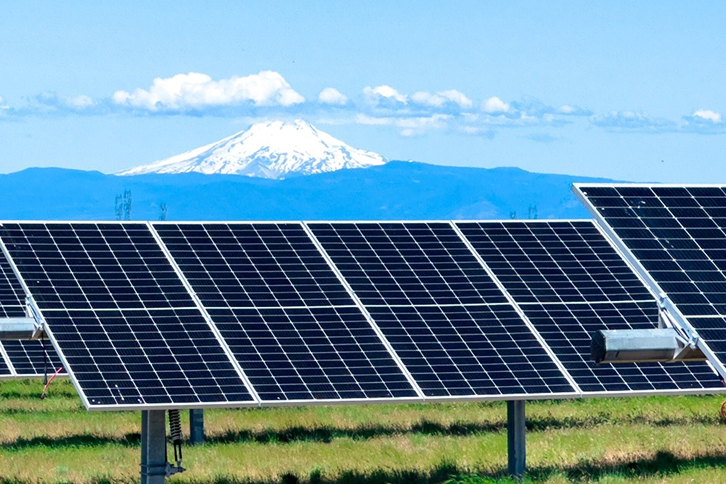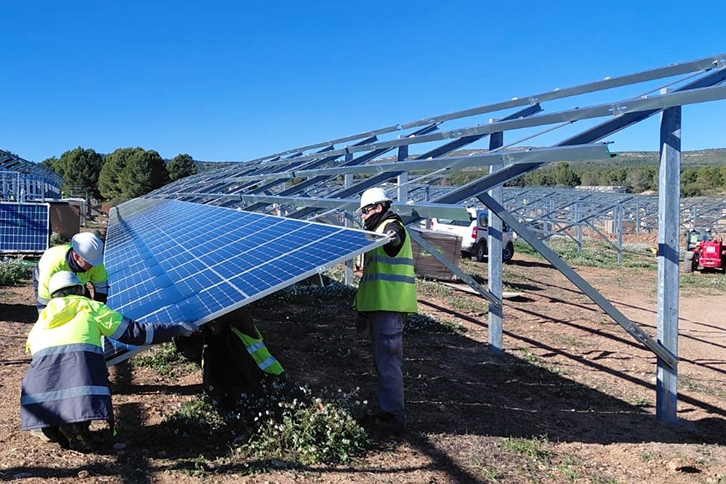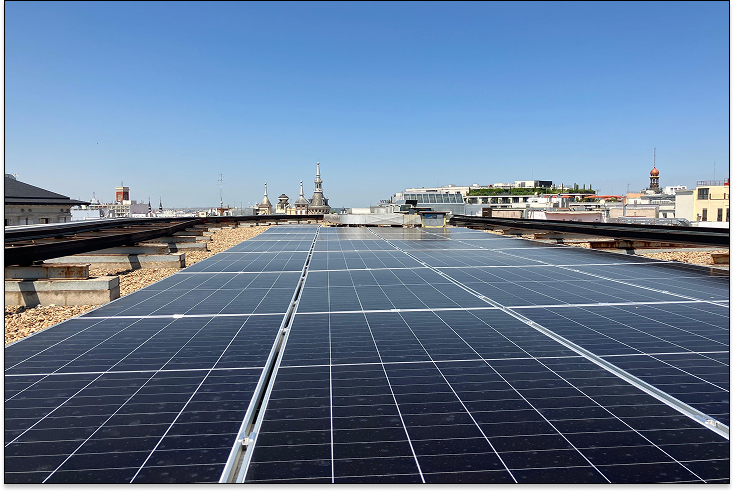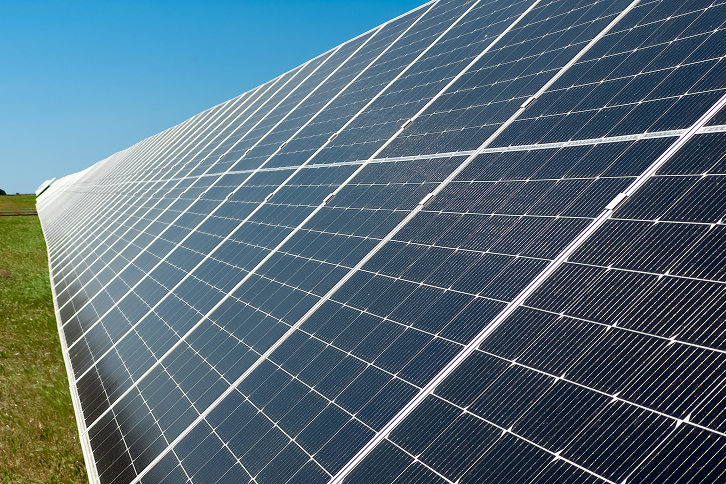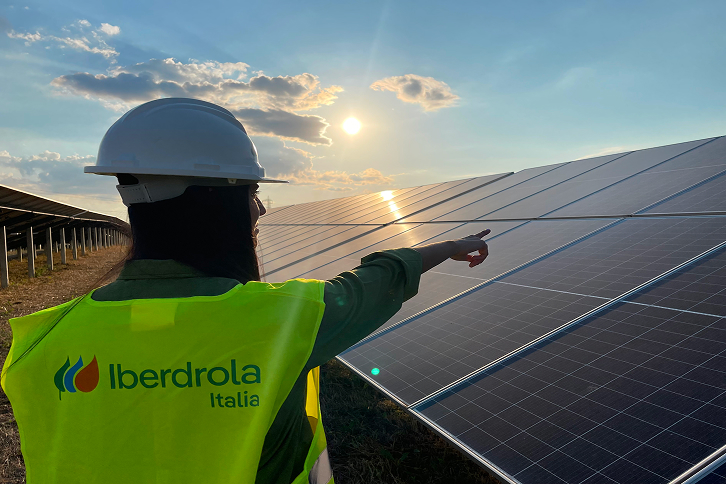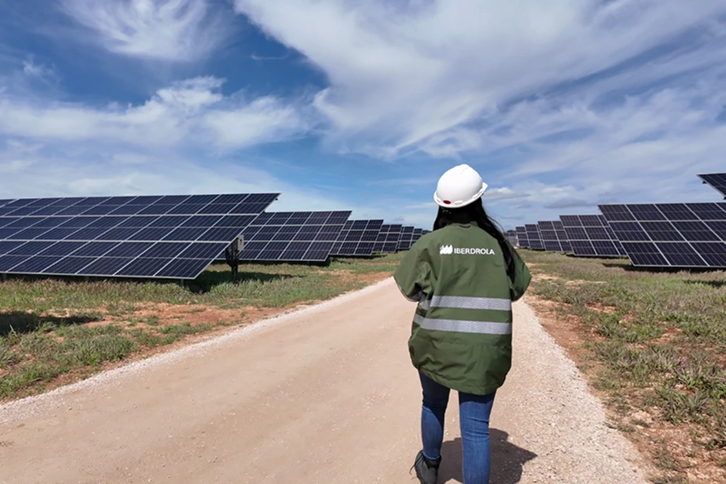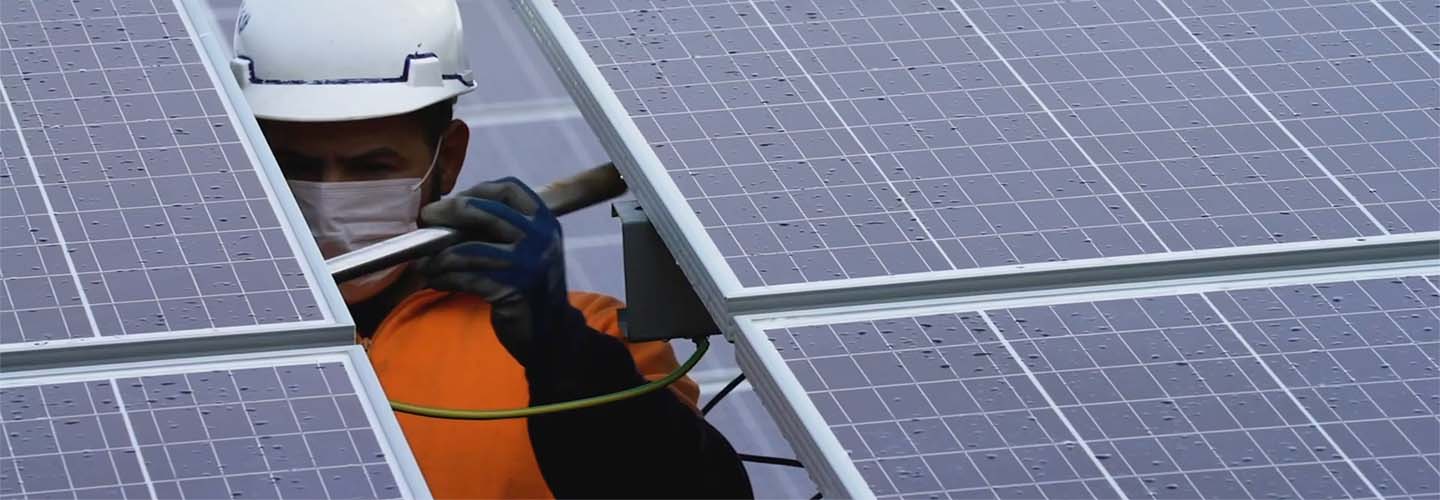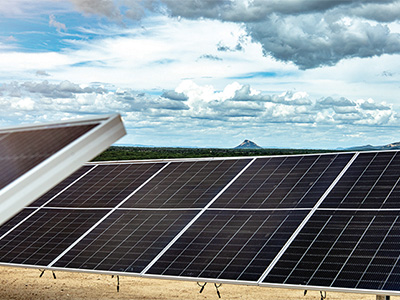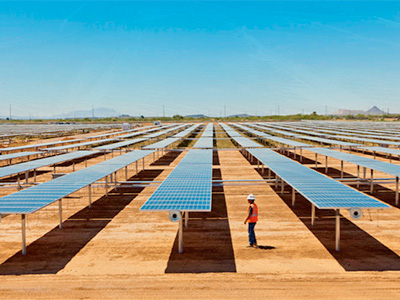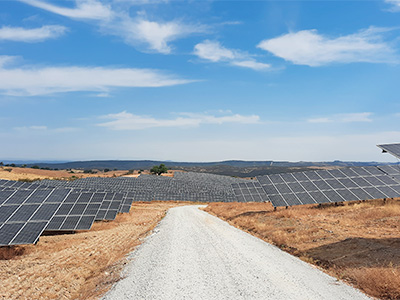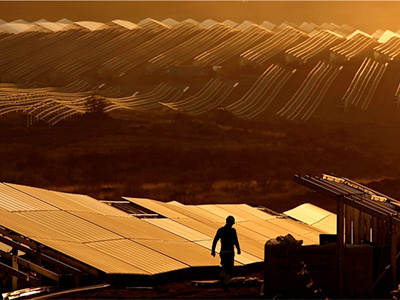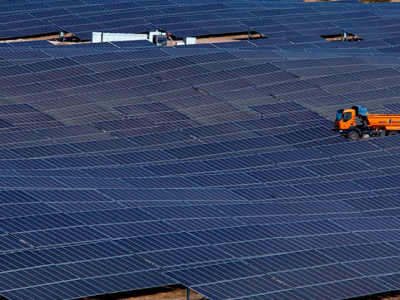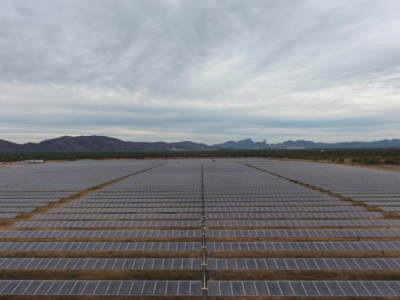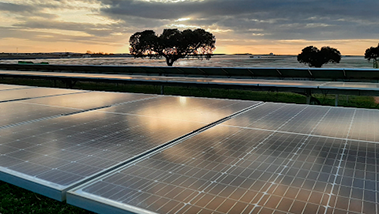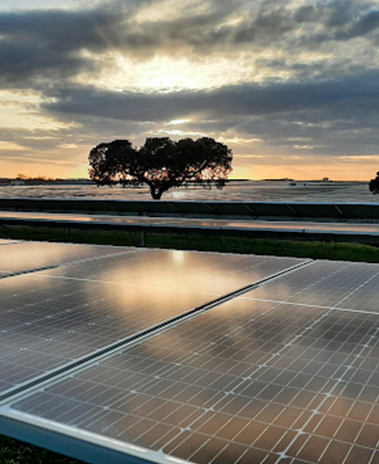-
The European Investment Bank (EIB) and Iberdrola have signed a new financing agreement worth €1 billion to fast forward the energy transition in Europe by building an extensive network of 19 solar power plants and 3 onshore wind farms in...
AVANGRID (NYSE: AGR), a leading sustainable energy company and member of the Iberdrola Group, announced today that it has achieved commercial operation at its 162 MWac (205 MWdc) Pachwáywit Fields solar farm (also known as Montague Solar) in...
-
Facebook Avangrid's pachwáywit fields, Oregon's largest solar farm, achieves commercial operation
-
Twitter Avangrid's pachwáywit fields, Oregon's largest solar farm, achieves commercial operation
-
Linkedin Avangrid's pachwáywit fields, Oregon's largest solar farm, achieves commercial operation
-
Whatsapp
-
-
Photovoltaic energy is a renewable and clean energy source that uses solar radiation to produce electricity. It can be produced by small generators for self-consumption or in large photovoltaic plants, and is one of the most important renewable energies for achieving decarbonisation goals.
Iberdrola reinforces its innovative and renewable leadership in Spain and will build Spain's first hybrid wind and solar plant in Castilla y León, in the province of Burgos. The company continues with the construction of two photovoltaic plants...
-
Iberdrola has submitted a photovoltaic panel manufacturing project to the third call of the Innovation Fund, the European Commission's grant programme for the demonstration of innovative technologies to reduce emissions. The manufacturing...
We strengthen our strategic alliance with MAPFRE to reach almost 450 MW of renewable energy in Spain
Iberdrola and MAPFRE are strengthening their strategic alliance in the energy sector in Spain. Both companies have added 150 new photovoltaic megawatts (MW) to the company created two years ago, bringing the total to 445 MW: 295 MW wind and 150...
-
Facebook We strengthen our strategic alliance with MAPFRE to reach almost 450 MW of renewable energy in Spain
-
Twitter We strengthen our strategic alliance with MAPFRE to reach almost 450 MW of renewable energy in Spain
-
Linkedin We strengthen our strategic alliance with MAPFRE to reach almost 450 MW of renewable energy in Spain
-
Whatsapp
-






